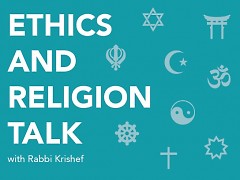The Reverend Colleen Squires, minister at All Souls Community Church of West Michigan, a Unitarian Universalist Congregation, responds:
“Purity is not a concept found in Unitarian Universalism therefore it holds little to no importance. What is important to our UU faith is the inherent worth and dignity of every person, which translates into true respect of self and sincere respect for others. Our faith believes in comprehensive sexual education for our young people that promotes a healthy understanding of human sexuality – an understanding that is not grounded in shame or taboo thinking. We believe in giving our youth healthy, positive and factual information about their bodies and sexual behavior so that they will make better and well informed decisions. Our message around sex is consistent, it is a part of life that should be pleasurable. We have learned that giving more knowledge around these issues has created a more mature youth, one who does not easily yield to peer pressure.”
Father Kevin Niehoff, O.P., a Dominican priest who serves as Adjutant Judicial Vicar, Diocese of Grand Rapids, responds:
“I may only presume the author of this question means ‘freedom from immorality, especially of a sexual nature.’ Purity is important!
“The Catholic Church teaches that baptism removes all sin from the soul, especially the sin from the original fall of Adam and Eve. Baptism does not remove the temptations to sin, just the sin itself.
“Purity requires ‘modesty and freedom from widespread eroticism and avoids entertainment inclined to voyeurism and illusion’ (Catechism of the Catholic Church, pp. 604-5). ‘With God’s grace human beings will prevail in two ways: 1) by the virtue and gift of chastity, for chastity lets us love with upright and undivided hearts; and, 2) by purity of intention which consists in seeking the truth end of man. That is with simplicity of vision, the baptized person seeks to find and to fulfill God’s will in everything’ (ibid., p. 603).
“As human beings, we make mistakes. The good news is that ‘Christ continually renews the life and culture of fallen human beings’ (ibid.). In other words, through the grace of God, we human beings may be renewed in purity of heart and mind by giving ourselves to God and living our lives reflecting on what this life is about. For Catholics, the goal is eternal life in the presence of God in the Kingdom of Heaven.”
Rev. Ray Lanning, a retired minister of the Reformed Presbyterian Church of North America, responds:
“Reformed Christians live in a tension between what we should be by grace and what we are by nature. Luther’s formula encapsulates the problem: Simul justus et peccator. We are ‘saints and sinners’ at the same time. We cherish the virtues of righteousness, justice, holiness, and purity, and we strive to bring forth these fruits of saving faith in our lives. But we also know that there is a law of sin at work in us that frustrates our best intentions and often leads us into sin. Paul expresses the anguish we often feel: ‘The good that I would I do not: but the evil which I would not, that I do’ (Rom. 7:19).
“But Scripture never ceases to call upon us to ‘worship the LORD in the beauty of holiness’ (Ps. 96:9). We must persevere in repentance, turning away from all sin, seeking His forgiveness and cleansing, and with joy and delight, striving to walk in the way of His commandments. Our hope for salvation lies in the perfect righteousness of Christ, not in any righteousness of our own.”
Fred Stella, the Pracharak (Outreach Minister) for the West Michigan Hindu Temple, responds:
“Purity can be expressed in any number of ways. Are we talking sexual purity? Purity of thought, word and deed? There is another option as well that is observed in some religions but not others: ritual purity. This is tradition that can be a lovely expression of devotion on one level and an offensive step backwards on another. I will take my own tradition to task here. One example would be that some orthodox temples ask menstruating women to avoid the premises until their period has past. I’m pleased to say that I know of no temples here in the USA that enforces this rule, but that doesn’t mean there aren’t any. They do exist in India. There is also the custom that some temples frequented by upper caste patrons observe of keeping lower caste members out, even though our scriptures forbid this. Yes, centuries ago people on the lower stratum of society often performed tasks that were, shall we say, ‘messy.’ But soap really has been a game changer. To continue this practice is an abomination. Throughout history Hindu reformers have railed against obsessions with ritual purity at the expense of treating people as expressions of divinity, as they are directed to do by our greatest saints and the scriptures they created.”
This column answers questions of Ethics and Religion by submitting them to a multi-faith panel of spiritual leaders in the Grand Rapids area. We’d love to hear about the ordinary ethical questions that come up on the course of your day as well as any questions of religion that you’ve wondered about. Tell us how you resolved an ethical dilemma and see how members of the Ethics and Religion Talk panel would have handled the same situation. Please send your questions to [email protected].
The Rapidian, a program of the 501(c)3 nonprofit Community Media Center, relies on the community’s support to help cover the cost of training reporters and publishing content.
We need your help.
If each of our readers and content creators who values this community platform help support its creation and maintenance, The Rapidian can continue to educate and facilitate a conversation around issues for years to come.
Please support The Rapidian and make a contribution today.
